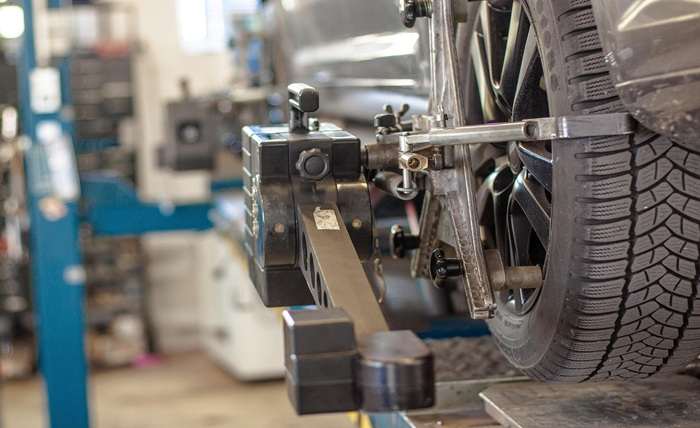Your vehicle’s engine is a complex system of interconnected components that work together to deliver power and efficiency. When performance issues arise, they can often be traced back to specific parts that aren’t functioning optimally. Understanding how each component contributes to your engine’s performance helps you identify problems early and address them before they lead to costly repairs. This article breaks down the most common engine components that affect performance and explains how they can impact your driving experience when they begin to fail.
Air Filter Maintenance
The air filter serves as your engine’s first line of defense against contaminants and debris that can harm internal components. A clogged or dirty air filter restricts airflow to the engine, creating an imbalance in the air-fuel mixture that reduces combustion efficiency and power. Symptoms of a dirty air filter include reduced acceleration, decreased fuel economy, and, in severe cases, a check engine light or rough idle. Most vehicle manufacturers recommend replacing the air filter every 15,000 to 30,000 miles, though this interval may be shorter if you frequently drive in dusty conditions.
Engine Control Module (ECM) Problems
The Engine Control Module (ECM) functions as your vehicle’s brain, constantly monitoring and adjusting various systems to optimize performance and efficiency. When an ECM begins to fail, it can cause a wide range of symptoms, including erratic idling, unexpected stalling, reduced power, decreased fuel economy, and illumination of the check engine light. Problems with the ECM often result from electrical issues, water damage, power surges, or simply age-related deterioration of internal components. Replacement ECMs must be built specifically for your vehicle make, model, and engine specifications, making this a job best left to professional technicians at specialized automotive electrical repair shops, offering ECM rebuild solutions.
Oxygen Sensor Function
Oxygen sensors monitor the exhaust stream and provide crucial feedback to the ECM about the air-fuel mixture, allowing for real-time adjustments that optimize combustion. A malfunctioning oxygen sensor can cause your engine to run too rich (excessive fuel) or too lean (insufficient fuel), resulting in poor performance, increased emissions, and reduced fuel economy. Most vehicles have multiple oxygen sensors positioned at different points in the exhaust system, with the most important being the upstream sensors located before the catalytic converter. The average lifespan of an oxygen sensor is approximately 60,000 to 100,000 miles, though they can fail earlier due to contamination from fuel additives, oil, or coolant leaks.
Fuel Pump Failures
The fuel pump maintains consistent pressure in your fuel system, delivering gasoline from the tank to the engine at the precise pressure required for optimal performance. When a fuel pump begins to fail, you might notice hesitation during acceleration, difficulty starting the engine, sputtering at high speeds, or a loss of power when the vehicle is under stress, such as climbing hills or carrying heavy loads. Fuel pump replacements are best purchased in specialized companies that offer various auto parts from different car makers and models, like Euroklasse. Moreover, fuel pump replacement is a moderately complex job that requires dropping the fuel tank in most vehicles, with service costs ranging from $400 to $1,200 depending on your vehicle’s make and model.
Ignition Coil Malfunctions
Ignition coils transform the battery’s low voltage into the thousands of volts needed to create a spark at the spark plugs, igniting the air-fuel mixture in the combustion chamber. When an ignition coil fails, it typically causes misfiring in one or more cylinders, resulting in rough running, hesitation during acceleration, increased exhaust emissions, and decreased fuel economy. Modern vehicles often use one coil per cylinder (known as coil-on-plug design), allowing for more precise control but also meaning that a single coil failure affects only one cylinder. Ignition coil problems are more common in high-mileage vehicles and can be accelerated by excessive heat, electrical system issues, or worn spark plugs that create additional resistance.
Spark Plug Issues
Spark plugs create the electrical spark that ignites the compressed air-fuel mixture in the combustion chamber, directly impacting your engine’s power, efficiency, and emissions. Worn or fouled spark plugs can cause misfires, rough idling, hard starting, hesitation during acceleration, and increased fuel consumption as the engine struggles to maintain proper combustion. The condition of your spark plugs can also indicate other engine problems – oil-fouled plugs may suggest worn valve seals or piston rings, while fuel-fouled plugs could indicate issues with your fuel injection system.
Understanding how these vital engine components affect performance helps you identify potential issues before they lead to costly repairs or leave you stranded. Each component plays a specific role in the complex system that powers your vehicle, and problems with any one part can create a cascade of performance issues. Regular maintenance according to your vehicle manufacturer’s recommendations remains the best way to prevent many common engine performance problems. Remember that quality replacement parts, while sometimes more expensive initially, often provide better performance and longevity than the cheapest available options.


